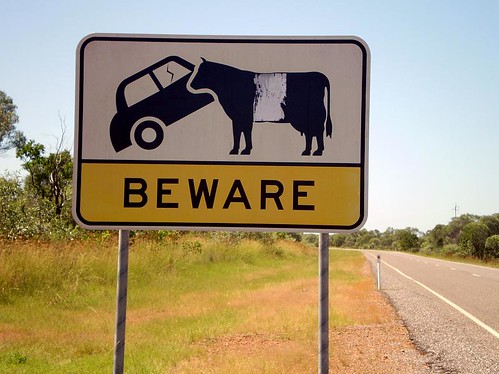
For some reason, the following quote from Ludwig Wittgenstein kept popping into my head today, at odd times (in my head it was paraphrased - my memory isn't quite this good):
“A new born child has no teeth.”—“A goose has no teeth.”—“A rose has no teeth.”—This last at any rate—one would like to say—is obviously true! It is even surer than that a goose has none.—And yet it is none so clear. For where should a rose’s teeth have been? The goose has none in its jaw. And neither, of course, has it any in its wings; but no one means that when he says it has no teeth.—Why, suppose one were to say: the cow chews its food and then dungs the rose with it, so the rose has teeth in the mouth of a beast. This would not be absurd, because one has no notion in advance where to look for teeth in a rose. ((connexion with ‘pain in someone else’s body’.))
I find this sort of paradigm-shifting thought utterly refreshing. Thank you, unknown brain processes, for bringing this to my attention today.



No comments:
Post a Comment